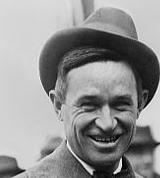Here’s a cheerful way to start your day, fellow writers: grab a double latte before you read this decidedly bleak view of the impending death of the book and the ultimate demise of the entire writing profession by a speaker at the 2011 Edinburgh International Book Festival, novelist Ewan Morrison.
Be forewarned: it intentionally reads like a moaning eulogy.
Click here to read Are Books Dead and Can Authors Survive if you wish & then come back for a counterpoint or two.
Remembering that a good speaker always aims his speech at his target audience (this is a book festival, after all), his prognostications for the publishing industry at large are spot on; can you imagine the atmosphere at this year’s “festival”? A Scottish (not Irish) Wake, indeed.
While Morrison makes valuable and cogent points in this condensed copy of his speech, I think his view of both the present and the future for writers as a whole is actually quite a bit bleaker than the reality (the reality being that very few writers of the last 20 years have benefited from either cushy contracts, steady employment, or big book deals). It’s a jungle out there and has been for quite some time.
Granted, many writers WILL suffer from this shakeup, but much more of the suffering will be done on the printing, distribution, publishing, and marketing end (which, to many professional writers, actually lifts a heavy weight from their profit structure, as Mr. Morrison has pointed out).
I think the people who have paid the biggest price in the publishing industry for the last five years or so have been the printing presses. It’s been an absolute bloodbath for that industry as demographics shifted, papers failed, and book demand decreased precipitously. And, unfortunately for them, they really can’t simply re-calibrate their business to serve the digital publishing needs of their customers. They just have to go out of business, willingly or otherwise, as the demand for their services continues to wane. This is a tragedy repeated from the past (wagon wheel makers, harness makers, etc. never believed the notion of a car would go anywhere, either). We still need our presses, but fewer and fewer will be servicing the market, no doubt, simply because the market has shrunk. Permanently.
This shift in the publishing industry parallels the restructuring our society is undergoing now: autoworkers, pensioners, public employees, bankers, tellers, realtors, EVERYONE is living through a seismic shift in the workings of the world. And everyone is still trying to calculate the value of every profession. Some will make it, some will not.
I do disagree with the notion that paper books are dying or dead. Paper books will continue to exist, simply because some types of books don’t easily lend themselves to contemporary ebook formats (research publications, cookbooks, any type of “thumb through” book) and some readers just HATE ebooks, although, in my opinion, they’re a quickly dying breed. But there will doubtless be a move to “publishing on demand” rather than conventional book printing and marketing, which, as Morrison argues, will ultimately reduce writer’s incomes.
In the longer term, there will be more demand for skillful writing in this new atmosphere and I think the negative view of the perceived economic impact is a little too provincial, neglecting the tsunami of globalization. But the days of the writing hack are numbered. No more economic free rides for the “I can write faster than anybody who can write better” crowd. Competition is increasing dramatically and writers MUST educate themselves on how to protect the value of their various print rights as the sands shift.
IF a writer is willing to put in the time to learn the ins and outs of digital technology, it’s now possible to be your own writer, editor, typesetter, publisher, and marketing department, whether your books are digital or conventional paper. And we are profoundly blessed, as writers, to have a direct line to the consumer market through the miracle that is Amazon; no agent, publicist, publisher, or printing press needed, thank you very much.
The digital revolution has also opened exposure for writers in ways never before possible, granting a voice and a publication forum to writers who, in the past, would have continued toiling in actual obscurity. The modern writer may continue to toil, but today, he’ll at least have a CHANCE at an audience before he dies. And the better a writer is at navigating this new digital world, the greater his economic opportunity. It’s simply Darwinism in action.
Just remember that the price extracted for any freedom is a heavy one; the support structure has been pulled out from under the contemporary writer, just as it has from innumerable occupations. Today, to make it in the writing profession, you’ve got to be strong and multifaceted. You must be both a creative artist AND a skillful businessperson. But you also have virtually unlimited OPPORTUNITIES in this Brave New World. Gird yourself and go for it; the future has arrived.
 “Diplomacy is the art of saying ‘Nice doggie’ until you can find a rock.”
“Diplomacy is the art of saying ‘Nice doggie’ until you can find a rock.”